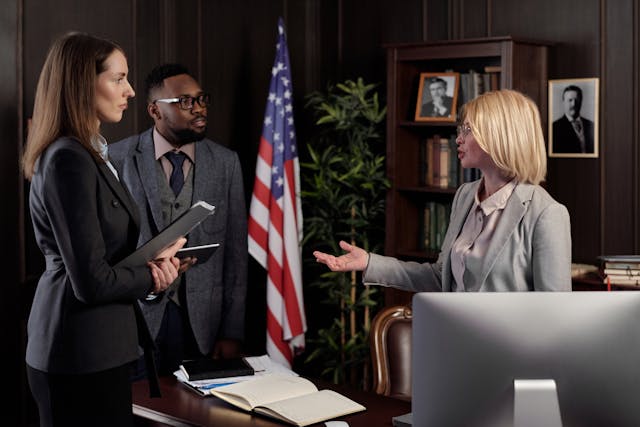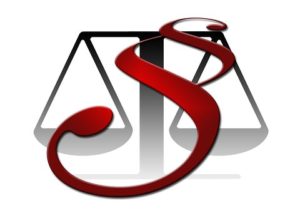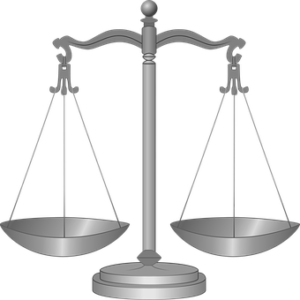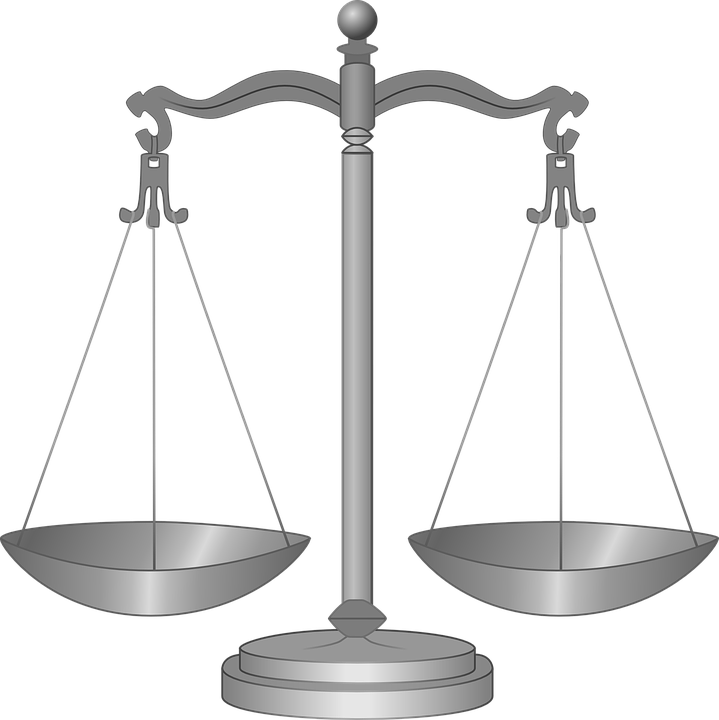What to Know Before Signing a Commercial Lease
Leasing a commercial space is a significant step for any business, whether you’re launching a startup, relocating, or expanding. Unlike residential leases, commercial leases carry more complexity and often less legal protection for tenants. That’s why understanding the terms, responsibilities, and potential pitfalls is essential before putting pen to paper. A poorly negotiated lease can lead to unexpected costs, legal disputes, or a space that doesn’t serve your business needs. Taking time to understand the details now can save you money and stress later.
Understand the Lease Type
Commercial leases come in several forms, and knowing the difference can dramatically affect your bottom line. A gross lease typically means the landlord covers most operating expenses like property taxes and maintenance. In contrast, a net lease—or its variants, like double or triple net leases—puts those costs on the tenant. Be sure you know exactly which costs you’ll be responsible for and how those costs might change over time.
Look Closely at the Lease Duration and Exit Terms
Many commercial leases lock you in for multiple years, so be sure the length aligns with your business goals. Startups or rapidly growing companies might need flexibility, while established businesses may prefer long-term stability. Understand what happens if you need to break the lease early—some contracts include stiff penalties or make it difficult to sublet. Having clear exit or renewal options written into the lease can prevent future headaches.

Check the Rent Structure and Escalation Clauses
Your base rent might look reasonable, but watch out for escalation clauses—terms that allow your rent to increase during the lease term. These could be tied to inflation indexes or occur annually at a fixed percentage. Ask for a clear explanation of how and when rent will rise. Also, determine whether your rent includes utilities, maintenance, or other fees, or if those are billed separately.
Know Your Responsibilities for Repairs and Maintenance
Unlike residential tenants, commercial lessees are often responsible for a broader range of maintenance and repair tasks. Clarify whether you’re expected to handle plumbing, HVAC, or roof repairs. Ask for a list of what the landlord covers and what you’re liable for, and make sure it’s included in writing. This prevents disputes if expensive issues arise during your lease.
Evaluate the Space and Its Suitability
Make sure the space is zoned for your business activity and complies with local building codes and accessibility regulations. If you plan to renovate or install custom features, check what’s allowed and whether landlord approval is required. Factor in the time and cost of any build-outs, and ensure that any promises made by the landlord (like upgrades or improvements) are clearly outlined in the lease.
Signing a commercial lease is more than just securing a space—it’s entering a legal agreement that can significantly impact your business operations and finances. By understanding lease types, rent structures, responsibilities, and exit clauses, you’ll be in a much better position to negotiate terms that work in your favor. Consulting a commercial real estate attorney before signing can provide crucial protection and ensure your business has the foundation it needs to grow.…
Exploring the Ethical Dilemmas Faced by Lawyers
Lawyers play a pivotal role in upholding justice and advocating for the rights of their clients. However, in the pursuit of these noble objectives, they often encounter complex ethical dilemmas that challenge their professional integrity and moral compass. In this article, we delve into the ethical quandaries faced by lawyers, examining the principles, rules, and considerations that guide their decision-making in the practice of law.
Confidentiality and Attorney-Client Privilege
One of the fundamental ethical duties of lawyers is to maintain confidentiality and uphold attorney-client privilege. This obligation requires lawyers to safeguard the confidences and secrets of their clients, even at the risk of personal or professional consequences. However, lawyers may face dilemmas when balancing their duty of confidentiality with obligations to disclose information in the interest of justice, such as preventing imminent harm or complying with legal requirements.
Conflict of Interests
Lawyers are obligated to avoid conflicts of interest that may compromise their loyalty to their clients or the integrity of the legal profession. However, navigating conflicts of interest can be challenging, especially in complex cases involving various parties or competing interests. Lawyers must carefully assess potential conflicts and take appropriate steps to mitigate or resolve them, such as obtaining informed consent from affected clients or declining representation altogether.

Zealous Advocacy vs. Professional Integrity
Lawyers are duty-bound to zealously advocate for their client’s interests within the bounds of the law. However, this duty must be balanced with the ethical imperative to uphold the administration of justice and maintain professional integrity. Lawyers may face ethical dilemmas when their clients’ interests conflict with broader ethical, moral, or societal considerations. In such cases, lawyers must navigate the tension between zealous advocacy and ethical constraints, ensuring that their actions uphold the principles of fairness, honesty, and respect for the rule of law.
Candor and Truthfulness
Honesty and candor are essential ethical principles in the practice of law. Lawyers must be truthful in their communications with clients, courts, and opposing parties, and refrain from making false or misleading statements. However, lawyers may face dilemmas when clients expect them to engage in deceptive or unethical conduct to advance their interests. In such situations, lawyers must uphold their duty of candor while finding ethical ways to advocate for their client’s interests within the bounds of the law.

Professional Independence and Integrity
Lawyers must maintain their professional independence and integrity, free from undue influence or pressure that may compromise their capability to represent their clients effectively. However, lawyers may face ethical dilemmas when confronted with demands from powerful clients, employers, or other stakeholders that conflict with their ethical duties and obligations. In such cases, lawyers must demonstrate courage, resilience, and ethical fortitude to uphold their professional independence and integrity, even in the face of adversity.
Conclusion
The ethical dilemmas faced by lawyers are complex and multifaceted, requiring careful consideration, ethical reasoning, and adherence to professional standards and obligations. By navigating these dilemmas with integrity, honesty, and a commitment to justice, lawyers can uphold the principles of the legal profession and advance the cause of justice for their clients and society as a whole.…
Tips to Successfully Win Your Court Case
Going through a legal battle can be incredibly overwhelming and nerve-wracking. But fear not because we are here to provide valuable tips that will help increase your chances of emerging victorious in the courtroom. Navigating the intricate world of law requires more than just luck; it demands careful preparation, knowledge, and strategic thinking. Whether you’re representing yourself or have hired an attorney, understanding the court process, familiarizing yourself with the rules of evidence, and developing a winning strategy are essential steps toward achieving a favorable outcome.
Understand the Court Process
 Understanding the court process is crucial for effectively navigating a legal battle. Each jurisdiction may have its own unique procedures and rules, so it’s important to familiarize yourself with the specific processes that apply to your case. First and foremost, you should acquaint yourself with the different stages of a court case. This typically begins with filing a complaint or petition, followed by pre-trial proceedings such as discovery and motions. The next phase involves jury selection (if applicable), presenting evidence and arguments during trial, and concluding with a verdict.
Understanding the court process is crucial for effectively navigating a legal battle. Each jurisdiction may have its own unique procedures and rules, so it’s important to familiarize yourself with the specific processes that apply to your case. First and foremost, you should acquaint yourself with the different stages of a court case. This typically begins with filing a complaint or petition, followed by pre-trial proceedings such as discovery and motions. The next phase involves jury selection (if applicable), presenting evidence and arguments during trial, and concluding with a verdict.
Additionally, understanding court etiquette is essential in portraying yourself professionally. Dress appropriately – aim for conservative attire that shows respect for the gravity of the situation. It’s also important to be punctual; arriving early demonstrates preparedness and respect for everyone involved. Last but most importantly, always diligently follow any instructions given by the judge or courtroom personnel – this includes rules regarding the submission of documents or exhibits and adhering to time limits for arguments or cross-examinations.

Understand the Rules of Evidence
Understanding the Rules of Evidence is crucial to successfully winning your court case. The rules dictate what can and cannot be presented as evidence, ensuring fairness and reliability in the legal process. It’s important to know that not all types of evidence are admissible in court. Hearsay, for example, is generally not allowed unless it falls under certain exceptions. This means you need to carefully consider the sources of your evidence and ensure they meet the criteria set out by the rules. Understanding how to present your evidence effectively is key. You must be able to authenticate any documents or physical items you wish to introduce into court. This can involve providing witnesses or other supporting evidence that establishes their authenticity.
Develop a Winning Strategy
 When winning your court case, having a well-thought-out strategy is crucial. Your strategy should be tailored to the specifics of your case and align with your overall goal. Here are some tips to help you develop a winning strategy. Researching and understanding the laws relevant to your case is important. This will enable you to identify any loopholes or weaknesses in the opposing party’s argument and strengthen your position. Additionally, familiarize yourself with previous cases similar to yours, as they can provide valuable insights into successful strategies. Next, gather all necessary evidence and organize it logically. This includes documents, photographs, witness statements, or other supporting materials to bolster your arguments.
When winning your court case, having a well-thought-out strategy is crucial. Your strategy should be tailored to the specifics of your case and align with your overall goal. Here are some tips to help you develop a winning strategy. Researching and understanding the laws relevant to your case is important. This will enable you to identify any loopholes or weaknesses in the opposing party’s argument and strengthen your position. Additionally, familiarize yourself with previous cases similar to yours, as they can provide valuable insights into successful strategies. Next, gather all necessary evidence and organize it logically. This includes documents, photographs, witness statements, or other supporting materials to bolster your arguments.
Successfully winning a court case can be a challenging and complex process. However, by understanding the court process, familiarizing yourself with the rules of evidence, and developing a winning strategy, you can greatly increase your chances of success. Remember that each case is different; there is no one-size-fits-all approach to litigation strategies. Therefore, always consult an attorney for personalized advice based on your specific circumstances. We hope that you have found this blog post helpful.…
How to Make an Appeal in Court: The Essential Guide
If you’ve been convicted of a crime and believe that you have been wrongfully accused or that the sentence given to you is too harsh, you may want to consider appealing the decision. This can be a difficult process, but with the help of an experienced lawyer, it can be done. This guide will walk you through the essential steps involved in making an appeal in court.
Keep in mind that every case is different, so please consult with a qualified legal professional before making any decisions.
State Your Case
People accused of something will be allowed to hear their case in court. Try to explain the whole situation and not just parts of it to make it more relatable to the appellate court. However, if you’ve been convicted, you will need to state your case to the appellate court. This is why it’s crucial to have a lawyer that knows how to present your side of the story in the most favorable light possible.
File an Appeal
The first step in appealing a conviction is to file an appeal with the court. This must be done within a specific timeframe, so acting quickly is essential. Your lawyer will be able to file the necessary paperwork and get the process started. The process is not usually very complicated, but it’s important to have someone on your side who knows the ins and outs.
Wait for a Hearing
After you’ve filed an appeal, the next step is to wait for a hearing. This can take some time, so be patient. In the meantime, your lawyer will continue working on your case and gathering evidence. It’s important to be prepared for the hearing to make the best possible argument.
At the Hearing
The hearing is where you will present your case to the appellate court. This is your chance to tell your side of the story and convince the court to overturn the conviction. Your lawyer will help you prepare for this, so make sure to listen to their advice.
After the Hearing
Once the hearing is over, the appellate court will make a decision. If they decide to overturn the conviction, you will be free to go. If they uphold the conviction, you may still have options available to you. Consult with your lawyer to see what your next steps should be.
Appeal to a Higher Court
 If you got rejected in your first attempt to appeal, you might still have the option to appeal to a higher court. This is usually a last resort, but it’s worth considering if you believe that you were wrongfully convicted. Again, this is a complex process, so it’s necessary to have an experienced lawyer by your side. Appealing to court can be a complicated process, but with the help of an experienced lawyer, it can be done. So, don’t worry too much and hire a good lawyer to represent your case.…
If you got rejected in your first attempt to appeal, you might still have the option to appeal to a higher court. This is usually a last resort, but it’s worth considering if you believe that you were wrongfully convicted. Again, this is a complex process, so it’s necessary to have an experienced lawyer by your side. Appealing to court can be a complicated process, but with the help of an experienced lawyer, it can be done. So, don’t worry too much and hire a good lawyer to represent your case.…
Qualities of a Good Injury Lawyer
Every country in the world has a judicial system by which it runs. By all means possible, justice has to be upheld. It has to start with the citizens and how they would love to have justice served to them. Let’s not forget that the biggest players in this game called the law.
It touches on many areas to see to it that everyone is well catered to. For instance, anyone involved in a case of personal injury must have proper legal counsel to see to it that all goes well. This is not as easy as it seems but at the end of the day, the experts always know how to ensure that justice is served. Here are some of the qualities that such lawyers should possess.
Years of Experience
A lawyer who has been in this field for long must have known how to go about even the toughest of cases which is why they need to be given a chance for the case to move as smoothly as it should.
On the bright side, the best lawyers have established themselves online and are not so hard to find. You can even contact them online and consult them over various issues first before booking an appointment with them.
This makes it easier even for anyone getting into cases for the first time. At least they will know the very first thing about what to do when faced with a situation on a personal injury.

Effective Communication
A good lawyer can present a case in a court of law. Arguing the facts on the situation in question takes a lot of it as well as wisdom. This is where effective communication comes in handy.
It would be a waste of time to settle for a lawyer that barely knows how to express themselves. This will cause quite a rift when you have a case that must be dealt with firsthand.
When you find a reliable auto injury lawyer, you should expect nothing but the very best when it comes to communication. When this factor is handled correctly, your case is sure to get back on the right track. It will be over before you know it.
Genuinely Licensed
Every lawyer who is genuine in their dealings must have certifiable documents that should see to their operations. Failure to which should see to it that you continue with your thorough search for a lawyer who has been certified and cleared by the relevant authorities.
Beware of documents that are left hanging on the wall but have no meaning. Some lawyers use the most fraudulent means to capture their unsuspecting clients. You should not be one of them as there are many ways in which you can equip yourself using the various tools close by.
This includes the internet among many other useful sources.

Easily Reachable
There is nothing as frustrating as having a tough case to handle with no legal help. On the bright side, there are ways in which you can contact the real experts. They are always within reach, especially when approached through the right channels.…
How to choose medical malpractice lawyers
Professional negligence continues to be a systematic adversity among many fields. Yearly, different cases are reported concerning trained individuals that fail to discharge their mandate and duty to the public. Willful neglect and needless oversights have caused people harm irreparable damage. The unsuspecting public is often put at risk by individuals that fail to exercise due diligence, skill, and care which is expected of them. In this regard, most governments and professions have developed regulations and policies that are aimed at protecting the public. The policies notwithstanding, professional negligence continues to persist. Therefore the public can seek compensation in court whenever their interest have been violated.
Medical malpractice is a common area of concern. This involves negligence by doctors and other medical  practitioners. Negligent actions include acts that are unreasonable to a right-thinking man. For a medical professional to be found guilty of professional negligence, it must be shown that the actions committed or omitted amount to neglect and an abdication of duties owed to the public. Patients that have been subject to professional negligence/ medical malpractice can seek compensation in court. The claim in court is aimed at obtaining adequate compensation and admission of guilty by the tortfeasor. Consequently, it is prudent to hire a renowned attorney that is experienced in professional negligence claims. The tips listed hereunder can be used to select a kentucky medical malpractice attorney to pursue your claim in court.
practitioners. Negligent actions include acts that are unreasonable to a right-thinking man. For a medical professional to be found guilty of professional negligence, it must be shown that the actions committed or omitted amount to neglect and an abdication of duties owed to the public. Patients that have been subject to professional negligence/ medical malpractice can seek compensation in court. The claim in court is aimed at obtaining adequate compensation and admission of guilty by the tortfeasor. Consequently, it is prudent to hire a renowned attorney that is experienced in professional negligence claims. The tips listed hereunder can be used to select a kentucky medical malpractice attorney to pursue your claim in court.
Specialization and experience
As a general rule, you should always endeavor to hire an attorney that has specialized in the areas that you seek litigation. Specialization ensures that the advocate is knowledgeable and skilled in order to guarantee the best outcome. Experience equips the professional with the necessary proficiency that he will need to analyze and evaluate issues. Through experience, the advocate is able to predict the possible outcomes advise the clients accordingly.
Portfolio
 Before you hire an attorney, it is prudent to evaluate the type of clients that have been retained by the lawyer. This will give you a clear picture of the kind of practice that the advocate engages in. Through a firm’s portfolio, you can discern their competence and suitability to pursue your interest in court.
Before you hire an attorney, it is prudent to evaluate the type of clients that have been retained by the lawyer. This will give you a clear picture of the kind of practice that the advocate engages in. Through a firm’s portfolio, you can discern their competence and suitability to pursue your interest in court.
Resources
The human and financial resources of a firm will determine the potency of a law firm in succeeding in your claim. The firm ought to be adequately staffed so that you are guaranteed that they will have enough time to litigate comprehensively. Financial resource, on the other hand, will influence the expediency and efficiency of litigation.
…
Tips for choosing a great lawyer
Legal representation is a right that is enshrined in basic laws of various jurisdictions around the globe. This means that is a non-derogable right that accrues to anyone that is facing legal action. Proceedings in court against a party that has not sought or waived representation are null and void. A party that is denied the right can be able to reverse a judgment for the lack of a fair hearing which is another non-derogable right in many democracies. In this case, it is essential to seek legal representation each time you are faced with legal adversities.
All legal matters require the need to hire a qualified attorney. For example, trucker lawyers with CSA points will ensure that you are given your day in court backed with the adequate experience of a lawyer in the field. These lawyers know how to ensure that you do not lose your license over getting a ticket. The laws are getting more constrained and stricter, and therefore you need an attorney that has the experience to reduce the fines and ensure that your license is not suspended or revoked.
ensure that you are given your day in court backed with the adequate experience of a lawyer in the field. These lawyers know how to ensure that you do not lose your license over getting a ticket. The laws are getting more constrained and stricter, and therefore you need an attorney that has the experience to reduce the fines and ensure that your license is not suspended or revoked.
However, it is difficult to settle on an attorney that suitable for your case. In this regard, there are guidelines for choosing an attorney, and they are listed as follows;
Credentials
You should ensure that the attorney has acquired the relevant credentials that are vital to guarantee adequate legal services. Credentials include professional qualifications. Advocates undertake long-term legal education and training. You must, therefore, ensure that the advocate has the requisite professional certifications. Also, he must have a valid license to operate within your jurisdiction. Proper qualifications guarantee professionalism.
Experience
 It is important to understand the area of law that you require representation before you purport to hire one. This will ensure that you choose based on merit and not a whim. The lawyer you select must have adequate experience in the area of law that you are seeking representation. Experience is a tool in any profession, and it goes a long way in determining the efficiency of a lawyer.
It is important to understand the area of law that you require representation before you purport to hire one. This will ensure that you choose based on merit and not a whim. The lawyer you select must have adequate experience in the area of law that you are seeking representation. Experience is a tool in any profession, and it goes a long way in determining the efficiency of a lawyer.
Reputation
A good reputation is earned through efficiency, trust, and reliability. Therefore you should evaluate the reputation of the lawyer among legal practitioners, past and present clients. This is a reliable yardstick for determining whether the attorney has the expertise required to handle the matter with utmost professionalism and zeal. You can also get enough information about the lawyer through customer feedback on their website.…










